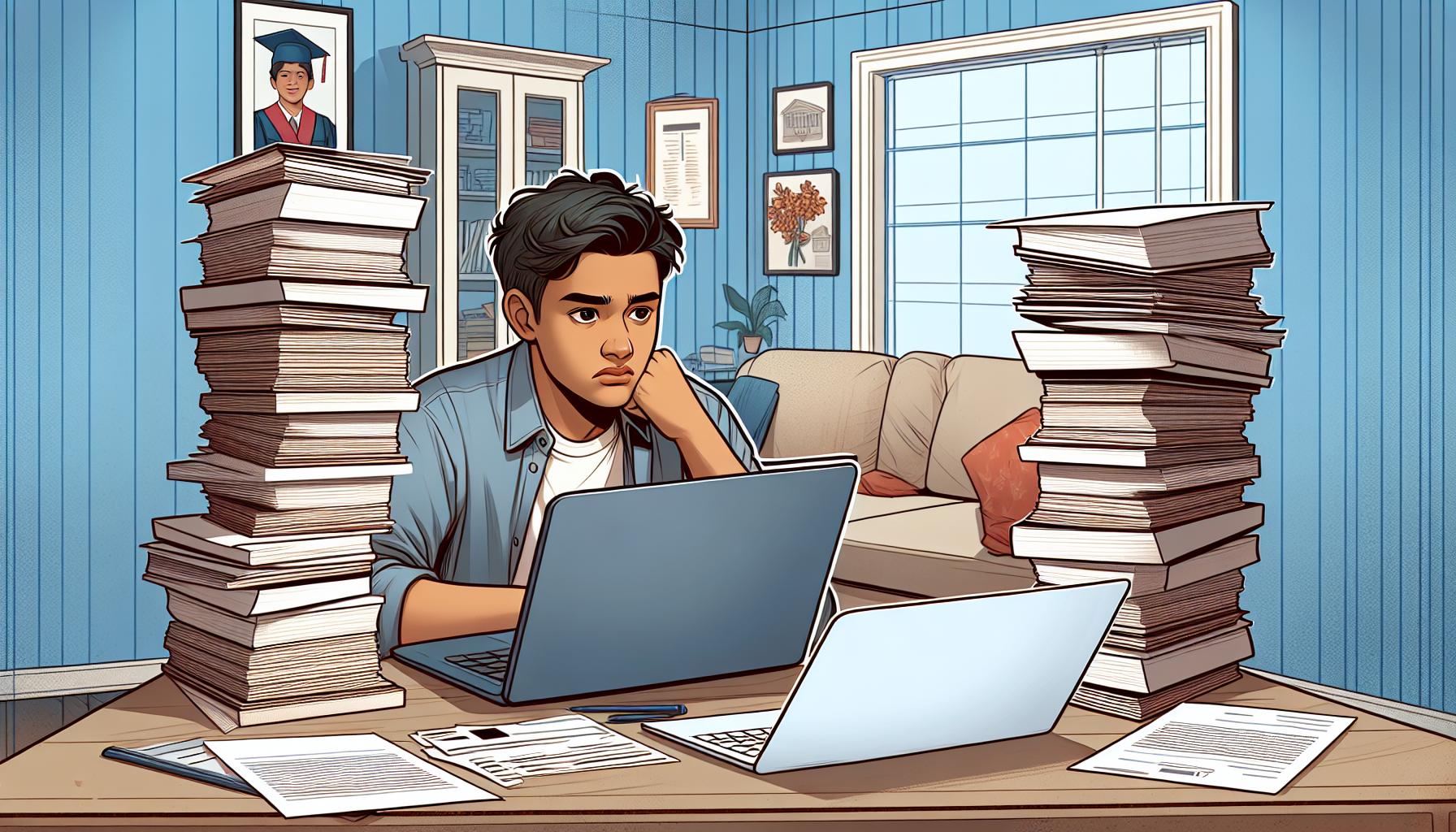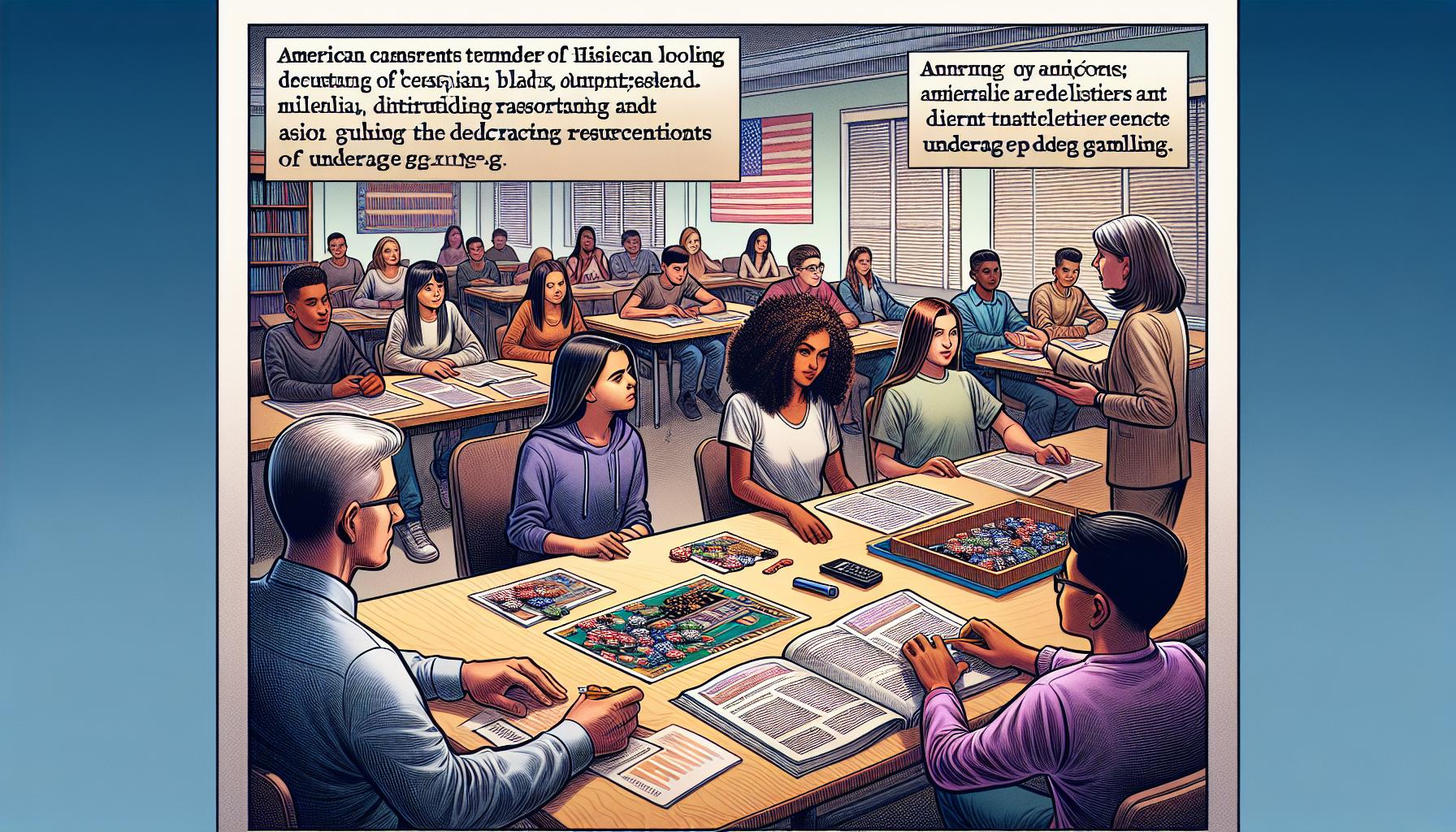Ever wondered what happens if you get caught gambling under 21? The thrill of the game might seem enticing, but the consequences can be far from fun. Whether you’re at a casino or betting online, the legal ramifications are serious and can impact your future.
From hefty fines to potential jail time, getting caught isn’t just a slap on the wrist. Authorities don’t take underage gambling lightly, and the penalties can vary depending on where you are. It’s crucial to understand the risks before placing that bet, as ignorance won’t protect you from the law.
Legal Consequences of Underage Gambling
Criminal Charges and Fines
Underage gambling can lead to criminal charges and significant fines. Authorities charge individuals under 21 caught gambling with a misdemeanor. In Nevada, fines can reach up to $1,000, while in New Jersey, individuals may face up to $500 in penalties (Nevada Gaming Commission, New Jersey Division of Gaming Enforcement). These financial penalties strain personal finances and create a lasting impact on credit records.
Probation and Community Service Options
In some cases, probation and community service replace or supplement jail time and fines. Probation periods can range between six months to one year, depending on the jurisdiction. During probation, individuals must comply with specific conditions, such as regular check-ins with probation officers and attendance at educational programs. Community service requirements can range from 20 to 100 hours, focusing on activities beneficial to the community. These alternatives provide opportunities to learn from mistakes and avoid incarceration, though they still carry long-term consequences.
How It Affects Future Opportunities

Impact on College Admissions
College admissions committees often scrutinize applicants’ legal and disciplinary records. If under 21 and caught gambling, this might appear on record. Admissions officers might view this as a lack of judgment or responsibility, affecting your application negatively. Some institutions have strict codes of conduct that could disqualify or defer acceptance based on such infractions. For example, selective universities might prioritize candidates with clean records, making it harder for those with gambling offenses to compete. Thus, an underage gambling charge can impede academic ambitions.
Employment Challenges
Underage gambling convictions can significantly impact job prospects. Many employers conduct background checks, especially for roles in finance, education, or public service. A criminal record for gambling can signal potential risks to employers. This might lead to rejection, even if the offense seems minor. Fields with strict regulatory standards, like banking or healthcare, might disqualify candidates automatically. Moreover, some licensing boards require disclosures of criminal activity, complicating credentialing processes. Consequently, this could limit career opportunities and hinder professional growth.
Parental Responsibility and Consequences
Legal Implications for Guardians
Guardians bear significant responsibility if their child gets caught gambling under 21. Depending on the jurisdiction, parents might face fines or be charged with neglect. In some cases, child protective services may get involved if authorities deem the guardians failed to supervise their child adequately.
For example, if a minor gets involved in gambling activities in locations like Nevada or New Jersey, authorities might investigate the guardians for neglect. This can lead to legal proceedings, potentially resulting in fines or mandatory counseling programs. Guardians can also be held liable for any financial losses or penalties incurred by the minor.
Educational and Preventative Measures
Parents should proactively prevent their children from engaging in gambling activities. Educational programs targeting underage gambling risks can be beneficial. Schools often collaborate with local authorities to provide seminars and workshops aimed at educating youths and parents about the dangers associated with gambling.
Encouraging open communication about the negative impacts of gambling can deter minors from risk-taking behaviors. Guardians can foster environments where children feel comfortable discussing peer pressure and making informed decisions. By setting a good example and monitoring online activities, parents can significantly minimize the risk of underage gambling.
Prevention and Educational Programs

School Programs and Awareness
Schools play a crucial role in preventing underage gambling and raising awareness about its risks. Many educational institutions implement structured programs designed to educate students about gambling’s dangers. These programs often include interactive workshops, seminars with experts, and age-appropriate materials that highlight the mental and financial pitfalls of gambling. For example, in New York, public schools have integrated gambling awareness into their health education curriculum. Moreover, partnerships between schools and local authorities, such as police departments, can reinforce the message and provide a unified front against underage gambling.
Online Resources and Help Centers
Online resources and help centers offer accessible forms of support and information on underage gambling. Websites like the National Council on Problem Gambling (ncpgambling.org) provide valuable materials, including self-assessment tools, educational articles, and helplines for immediate assistance. These platforms cater to both minors and their guardians, ensuring they understand the risks and know where to turn for help. For instance, the Federal Trade Commission’s (FTC) website includes sections dedicated to educating parents about online gambling traps their children might encounter. Additionally, state-specific sites, such as California’s Office of Problem Gambling, offer localized resources and connections to nearby support services.
Conclusion
Understanding the severe consequences of underage gambling is crucial for both minors and their guardians. Legal repercussions can be life-altering, impacting one’s record and finances. Parents also bear responsibility, potentially facing fines or neglect charges.
Educational measures and preventative actions play a vital role in mitigating these risks. Schools, local authorities, and online resources offer invaluable support and information. Utilizing these tools can help prevent underage gambling and ensure a safer environment for all.
Frequently Asked Questions
What are the legal consequences of underage gambling?
Underage gambling can result in criminal charges, fines, and community service. The specific penalties vary by location. For instance, states like Nevada and New Jersey impose strict fines and potential criminal records for offenders.
How can underage gambling impact an individual’s record and finances?
Underage gambling can lead to a criminal record, which may impact future employment and educational opportunities. Financially, offenders may face significant fines that can affect their financial stability.
Are parents responsible if their child gambles under the age of 21?
Yes, parents and guardians can be held responsible. They may face fines, neglect charges, and involvement from child protective services if their child is caught gambling under 21.
What preventative measures can parents take against underage gambling?
Parents can supervise their children closely, educate them about the risks, and collaborate with schools and local authorities. Structured programs and awareness campaigns in schools can also help prevent underage gambling.
How can schools help in preventing underage gambling?
Schools can implement structured programs in partnership with local authorities to educate students and parents about the risks of underage gambling. These programs can include workshops, assemblies, and distribution of educational materials.
Are there any online resources available for underage gambling prevention?
Yes, there are numerous online resources available, including self-assessment tools and educational materials. State-specific websites, like California’s Office of Problem Gambling, offer localized information and support services for minors and their guardians.
